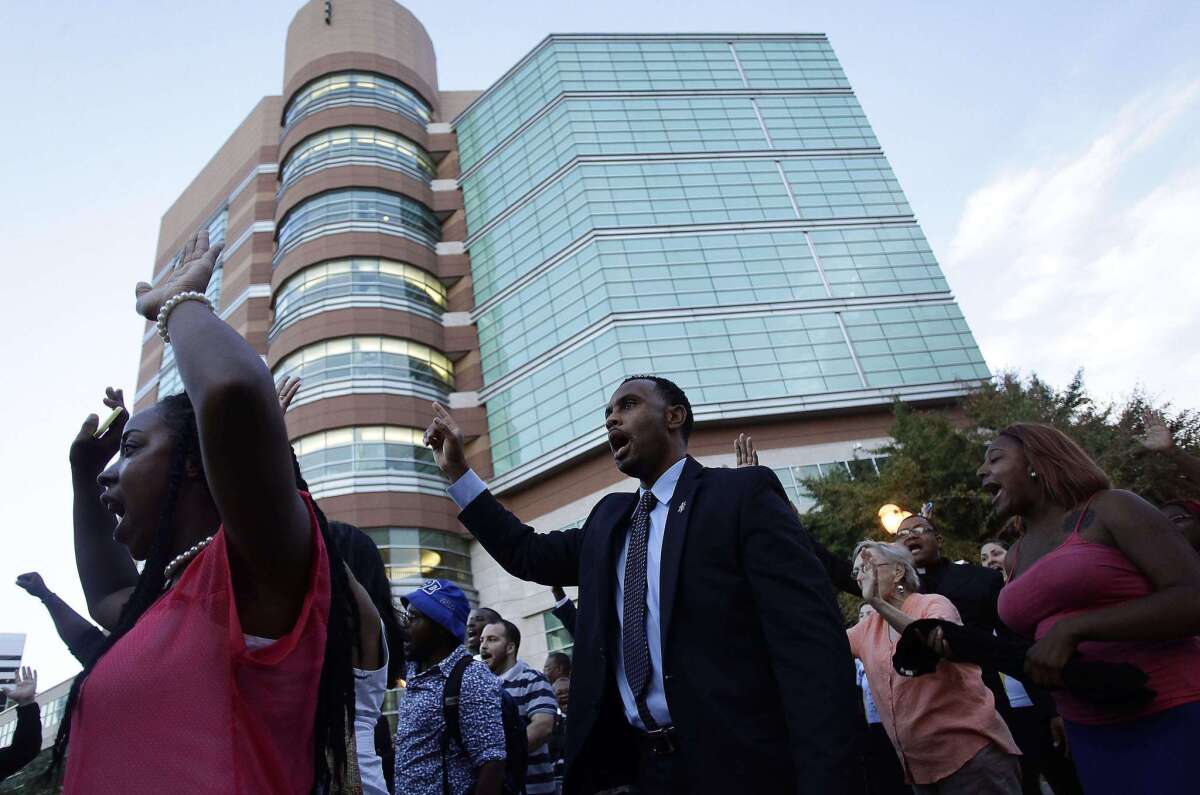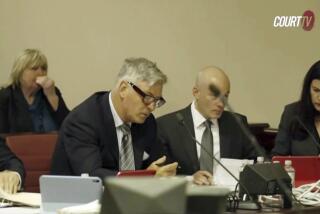Q&A: Grand jury starts on Michael Brown case: What you need to know

- Share via
A grand jury in St. Louis County began hearing evidence Wednesday in the death of Michael Brown, who was shot Aug. 9 by a police officer in Ferguson, Mo. Here are some questions and answers about how the grand jury works and what to expect.
What will the grand jury do?
Grand juries decide “whether a crime was committed and whether there is probable cause to believe the defendant committed it,” as the Missouri attorney general’s office explains. If so, the grand jury can issue an indictment, which is a formal charging document.
In this case, the grand jury will decide whether to indict Ferguson Police Officer Darren Wilson, who fatally shot Brown. They will consider a range of charges, from first-degree murder to involuntary manslaughter, said Susan McGraugh, an associate professor at the St. Louis University School of Law. To issue an indictment, at least nine members of the 12-person panel must agree to do so.
Who is on the grand jury?
Members of St. Louis County grand juries must be United States citizens who live in the county, must be at least 21 years old and can’t have served on a grand jury in the last 10 years, McGraugh told the Los Angeles Times. They are randomly selected for jury duty and come from the same pool as trial jurors, she said.
This particular grand jury has been serving for several months and has handled a number of other cases. It is “a diverse group of citizens — black, white, male, female, age differences and from different parts of the county,” according to Ed Magee, a spokesman for St. Louis County Prosecutor Robert McCulloch.
What is the prosecutors’ role?
The prosecuting attorney’s office directs the hearing, McGraugh said. Although the grand jury itself has the right to ask questions and subpoena witnesses, she said, for the most part the prosecutors do those things and decide what evidence to present. Defense attorneys are not involved, and the hearing is not presided over by a judge.
“We will be presenting absolutely everything to this grand jury — every statement that any witness made, every witness, every photograph, every piece of physical evidence,” McCulloch said Wednesday on “The McGraw Show” on KTRS-AM. “Absolutely nothing will be left out.”
Kathi Alizadeh and Sheila Whirley of the St. Louis County prosecutor’s office will be handling the case, he said on the radio show.
Will the public learn the details of the hearing?
It’s unlikely. “The public is not entitled to be present or to know the content of the proceedings,” McGraugh said. Magee said that jurors are not permitted to disclose information and that they could be charged with contempt of court if they do.
Why is a grand jury involved in this case?
In general, prosecutors can either take a case before a grand jury or have a preliminary hearing in open court. In St. Louis County, all homicide cases go before a grand jury, according to the county prosecutor’s office.
How long will the proceedings take?
Prosecutors will finish presenting evidence to the grand jury “hopefully by the middle of October,” after which the jurors “can meet as long as they want” before reaching a decision, McCulloch said on KTRS.
Normally the grand jury meets each Wednesday but can meet more often if necessary, Magee said. Once the jurors’ terms end next month, he said, “they will work only on this case and will meet when they all are available and witnesses can be presented.”
Will Darren Wilson testify?
It’s rare for a defendant to testify in a grand jury hearing, Magee said, but Wilson “will be afforded the chance.” He can choose not to testify, however.
If Wilson is indicted, does that mean he’s guilty?
No. An indictment is more than just an accusation, because it enables prosecutors to bring charges and lets the judge issue a warrant for the defendant’s arrest, but “it just is really a way of moving a case forward,” McGraugh said.
If indicted, Wilson will face trial unless he pleads guilty or the prosecutor dismisses the case, she said. McGraugh said prosecutors drop cases when they think they can’t win -- for example, if they’re not allowed to use a key piece of evidence.
What if the grand jury doesn’t indict?
Then the case won’t move forward. But that doesn’t mean it would necessarily be over: The prosecutor could decide to start the whole grand jury process again if, for example, new evidence arose, McGraugh said.
For more guides to current events, follow @raablauren on Twitter.
More to Read
Sign up for Essential California
The most important California stories and recommendations in your inbox every morning.
You may occasionally receive promotional content from the Los Angeles Times.











